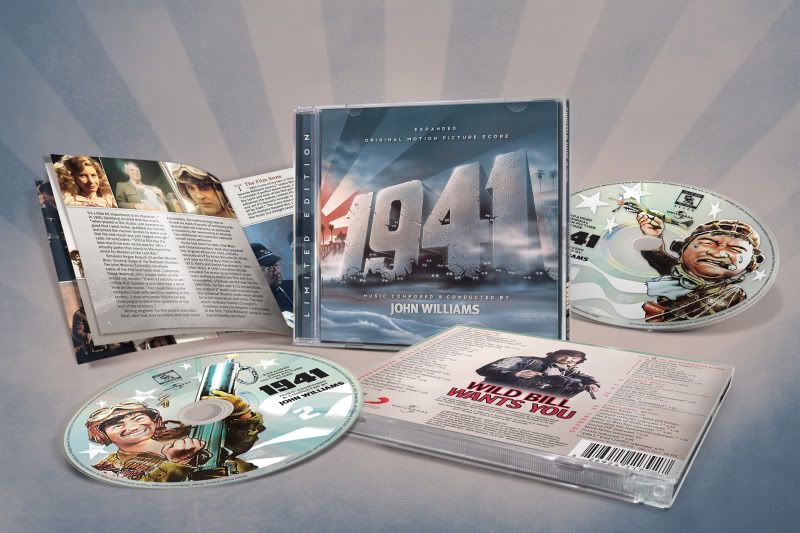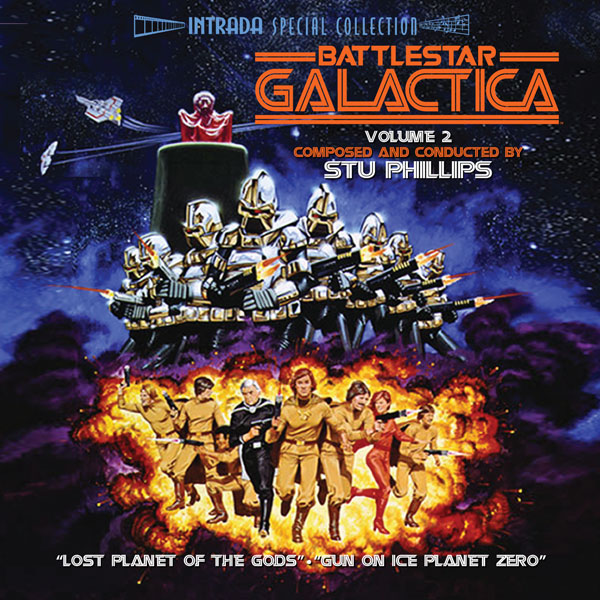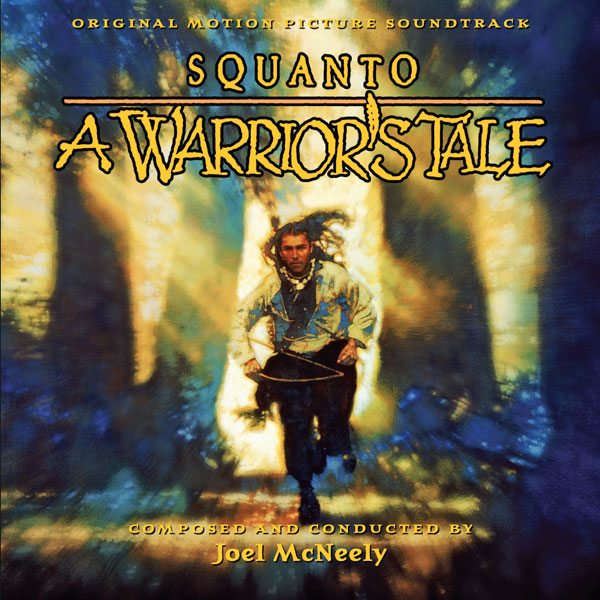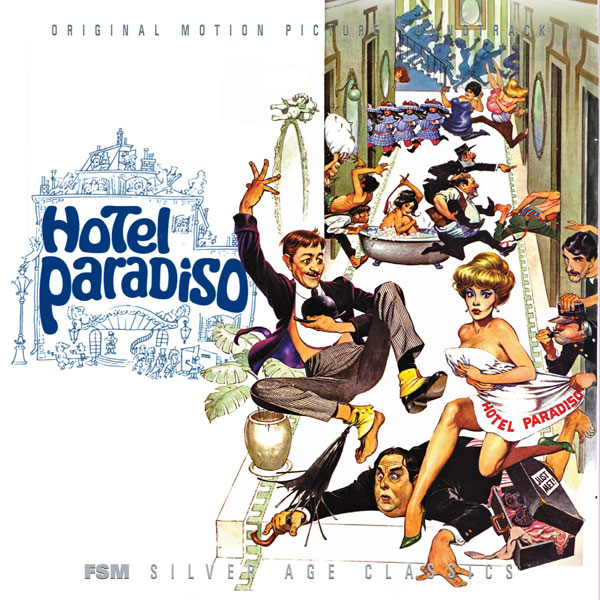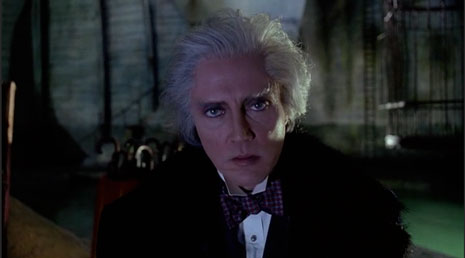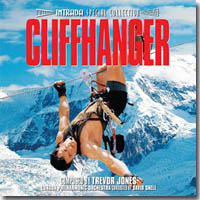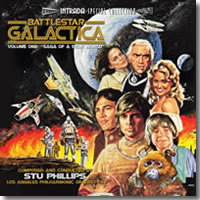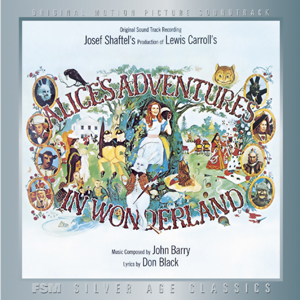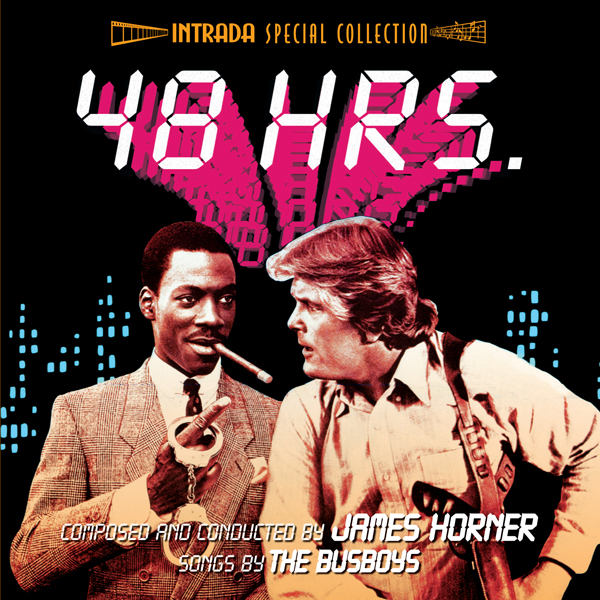Monday, October 31, 2011
Disaster Strikes
On April 9, 1894, nine loggers employed by the Staples & Covell company crowded into a narrow gauge engine for a trip back to their camp in Oceana County, Michigan. Unbeknownst to them, a small tree trunk had been blown across the track by heavy winds; the engine derailed into a ravine, and, within moments, spilled coals and a burst boiler transformed the cab into a searing inferno. The maimed men managed to escape the overturned engine, but seven of them perished horribly over the ensuing hours. Of the two who survived, one was my grandfather's grandfather, Fred J. Chalker. Had he perished with his comrades (and his survival was a very narrow thing; his injuries, many incurred in a heroic effort to rescue his fellows, were critically severe) I would not be here today to write these words.
The Staples & Covell disaster is often remembered as the worst tragedy in the history of West Michigan lumber. For many years, it has been the subject of intensive research by my maternal grandmother, Harriett Chalker. A few years back, she asked for my assistance in writing a history of the disaster, informed by the oral account transmitted down through my family. I did so, and the resulting work was collected, together with primary source documents and historical photographs, into a self-printed book.
My piece, which I entitled "An Awful Doom Revisited" (after the original Whitehall Forum headline), has now been published in article form in the Fall 2011 issue of Chronicle, the quarterly magazine of the Historical Society of Michigan. It is available through their website, for those who are interested.
Friday, September 30, 2011
1941 – A Masterpiece Unveiled
For many years, it has been my contention that John Williams' score for 1941 has not received the recognition it deserves. Yes, the film was a box-office failure – but a spectacular, fascinating failure as only Steven Spielberg could achieve. A failure of disciplined film-making, as prolific album producer Mike Matessino has aptly described, but certainly not a failure of energy or creativity. And yes, the score was the subject of a popular record – an album arrangement that was twice released on CD – and also received an isolated music track on the DVD. But the album, while succinct and highly enjoyable, was lamentably short; and the isolated score track was hacked to bloody pieces due to the way the film was edited (and significantly expanded) in post-production. I revisited these presentations countless times over the years, identifying as best I could where music had been altered, tracked, looped, shuffled around, or been removed. It was a necessarily incomplete reconstruction, but it was enough for me to reach the inescapable conclusion that, should any bold label undertake a comprehensive presentation of the score, it would be a revelation.
That time has now come. With Matessino at the helm, La-La Land Records has released a truly spectacular 2-CD set containing Williams score in all its unadulterated glory – the complete score as it was originally written and recorded. And it is indeed revelatory. For the first time, we have all the pieces to the puzzle ... and as expected, they fit together seamlessly to create a whole that is greater than the sum of its parts. Neither is this inconsequential music; it is big, brash, funny, thrilling stuff, from a legendary composer at the height of his strength. Remember that 1941 came amidst an extraordinary run of scores which included the first two Star Wars films, Superman, Raiders of the Lost Ark, and E.T.: The Extra Terrestrial. It absolutely belongs in their company. And La-La Land has lavished on it the attention which it merits, with superb art direction from Jim Titus, and even going so far as to arrange a special screening of the film with some of the production's original luminaries in attendance. So bravo to Mike, and to all the gang at LLL. This is one of the most exciting releases of the year.
That time has now come. With Matessino at the helm, La-La Land Records has released a truly spectacular 2-CD set containing Williams score in all its unadulterated glory – the complete score as it was originally written and recorded. And it is indeed revelatory. For the first time, we have all the pieces to the puzzle ... and as expected, they fit together seamlessly to create a whole that is greater than the sum of its parts. Neither is this inconsequential music; it is big, brash, funny, thrilling stuff, from a legendary composer at the height of his strength. Remember that 1941 came amidst an extraordinary run of scores which included the first two Star Wars films, Superman, Raiders of the Lost Ark, and E.T.: The Extra Terrestrial. It absolutely belongs in their company. And La-La Land has lavished on it the attention which it merits, with superb art direction from Jim Titus, and even going so far as to arrange a special screening of the film with some of the production's original luminaries in attendance. So bravo to Mike, and to all the gang at LLL. This is one of the most exciting releases of the year.
Announcing: Battlestar Galactica, Vol. 2
"Announcing" is something of a misnomer here, since Intrada's release of Battlestar Galactica, Vol. 2 was released several weeks ago and quickly sold-out! So if you're reading this, you either already have the disc, or are going to have to find it on the secondary market. It's a spectacular 2-CD set, however, featuring Stu Phillips' thrilling music for the two-part episodes "Lost Planet of the Gods" and "Gun on Ice Planet Zero." Action, adventure, mystery, romance, suspense ... it's all here in spades! This volume also highlights some previously unreleased series format music, including the much-demanded sub-main-title music that played beneath the credits for the secondary and guest cast. By your command, BSG fans! Enjoy!
Monday, August 22, 2011
Announcing: Squanto: A Warrior's Tale
Lush, full-blooded orchestral scores seem relatively scarce these days. Or perhaps its just the inevitable uptick in slick, modern elements that makes it seem that way. Regardless, it's hard for me not to be nostalgic for the 1990s, which was unquestionably a great era for big, tuneful symphonic scores. I'm happy to announce (albeit a few weeks after the fact) that just such an album has recently come to light. The Intrada label has finally released Joel McNeely's sweeping score for Squanto: A Warrior's Tale, a 1994 live-action epic from the Walt Disney Company, and it was my happy assignment to do the liner notes. It's one of McNeely's best works ... a bold, adventuresome score, filled with color and melody. Fans of the composer should be very pleased, as should anyone with an affection for this particular period in film music history.
Tuesday, July 26, 2011
Announcing: The Moneychangers
Intrada Records has just released a spectacular 2-CD premiere of Henry Mancini's powerhouse score for The Moneychangers, a star-studded 1976 miniseries based on a novel by Arthur Hailey. It's a sprawling saga of money, power, sex, and violence centered around the world of high finance, and Mancini rose to the occasion with more than two hours of sweeping, dynamic music. Sadly, no soundtrack was issued at the time of the series' release, and the original recordings were long thought to be lost. Nor has the production (to date) ever been issued on home video ... with the result that, with the exception of a recording of the main theme on the LP Mancini's Angels, Mancini's glorious music went all but unheard for decades. Only those who had caught the original 1976 premiere truly knew what they were missing, as later broadcasts were severely abridged and gutted much of the composer's work.
Fortunately, Douglass Fake at Intrada never forgot or gave up hope ... and eventually, he discovered that a backup recording existed from one of the trombonists who performed on the sessions. This enabled a proper soundtrack presentation at last, and I was absolutely thrilled to be asked to write the liner notes. I was helped immeasurably in this task by the kind assistance of Jon Burlingame, a professor, journalist, and author, who is known the world over as an authority on (and advocate for) music for film and television. Jon was able to provide me with extensive research and production documents, and even graciously shared never-before-published quotes from his interviews with the departed maestro.
It is impossible to be a fan of film music and not acknowledge the debt owed to Henry Mancini. His luminous musicality and tireless work ethic elevated him to a level of celebrity and visibility rarely seen in this industry. The Moneychangers arrives as one of his most important "lost" works, and I hope that his legion of followers will find it as thrilling to discover and explore as I have.
Fortunately, Douglass Fake at Intrada never forgot or gave up hope ... and eventually, he discovered that a backup recording existed from one of the trombonists who performed on the sessions. This enabled a proper soundtrack presentation at last, and I was absolutely thrilled to be asked to write the liner notes. I was helped immeasurably in this task by the kind assistance of Jon Burlingame, a professor, journalist, and author, who is known the world over as an authority on (and advocate for) music for film and television. Jon was able to provide me with extensive research and production documents, and even graciously shared never-before-published quotes from his interviews with the departed maestro.
It is impossible to be a fan of film music and not acknowledge the debt owed to Henry Mancini. His luminous musicality and tireless work ethic elevated him to a level of celebrity and visibility rarely seen in this industry. The Moneychangers arrives as one of his most important "lost" works, and I hope that his legion of followers will find it as thrilling to discover and explore as I have.
Monday, July 25, 2011
A Conversation with Laurence Rosenthal
It has been my immense privilege to write the liner notes for numerous Laurence Rosenthal scores over the years, and each time, maestro Rosenthal has generously made himself available for interviews. By necessity, only excerpts of these make it into the finished notes. In many cases, that means plenty of interesting details fall by the wayside.
The interview I conducted for Film Score Monthly's recent release of The Comedians/Hotel Paradiso was particularly extensive. Both films were directed by Peter Glenville, allowing me to set two radically different scores within the context of a single working relationship – one of the most important of the maestro's long career. And so our conversation ranged from Rashomon to Man of La Mancha to A Patriot for Me, in addition to going into great detail on Hotel Paradiso and The Comedians.
Given all this, I thought it might be nice to transcribe the interview in its entirety, and put it up online for interested readers. Happily, both FSM founder Lukas Kendall and maestro Rosenthal were obliging! You can now read the complete piece, for FREE, at the FSM webpage.
I have come to know Laurence Rosenthal as man of robust good-humor and keen intelligence. I hope that in reading his words, you are able to get a sense of the personality behind so much incredible music.
The interview I conducted for Film Score Monthly's recent release of The Comedians/Hotel Paradiso was particularly extensive. Both films were directed by Peter Glenville, allowing me to set two radically different scores within the context of a single working relationship – one of the most important of the maestro's long career. And so our conversation ranged from Rashomon to Man of La Mancha to A Patriot for Me, in addition to going into great detail on Hotel Paradiso and The Comedians.
Given all this, I thought it might be nice to transcribe the interview in its entirety, and put it up online for interested readers. Happily, both FSM founder Lukas Kendall and maestro Rosenthal were obliging! You can now read the complete piece, for FREE, at the FSM webpage.
I have come to know Laurence Rosenthal as man of robust good-humor and keen intelligence. I hope that in reading his words, you are able to get a sense of the personality behind so much incredible music.
Sunday, July 24, 2011
The Quotable "Comedians"
One of my happier duties while working on the liner notes to Film Score Monthly's release of Laurence Rosenthal's The Comedians/Hotel Paradiso was the selection of quotes for the tray insert. The challenge: to take a film, and pick out the one line of dialogue or short exchange which best captures its essence – great fun, for an English major! The Comedians features a screenplay by the great English novelist, playwright, and critic Graham Greene (who also wrote the book), and so I found myself with an abundance of interesting options. I ultimately settled on:
I love the imagery here, which speaks directly to the film's title, and alludes to the darkness at the core of Papa Doc's Haiti. If I had it to do over again, that's still the quote I'd pick. But since there was so much rich dialogue to choose from, I figured I'd put some alternates up on the blog and let my readers decide if I made the right call. Here they are, in the order I wrote them down (as with FSM's final packaging, the speakers are not identified and no context is given):
"I'm a bit of a play-actor, myself. Who isn't, in this place? We all play drawing-room comedies in a blackout."
I love the imagery here, which speaks directly to the film's title, and alludes to the darkness at the core of Papa Doc's Haiti. If I had it to do over again, that's still the quote I'd pick. But since there was so much rich dialogue to choose from, I figured I'd put some alternates up on the blog and let my readers decide if I made the right call. Here they are, in the order I wrote them down (as with FSM's final packaging, the speakers are not identified and no context is given):
"There are days when I wonder, especially in the empty afternoons. You have a devil in you in the afternoons. When you're not with me, I wonder what the devil does."
"I don't concern myself with politics. I support the economy, when there are tourists."
"It's a horrifying world. I sometimes think that Haiti is no different from life anywhere."
"We shouldn't be ashamed of being comedians. You know, it's an honorable profession – if only we were good ones. We could perhaps give the world ... I don't know, a sense of style."
"You can't be jealous of the past."
"Oh, yes I can. One day, I'll be the past. There'll be a difference."
"You have a sense of humor. I'm in favor of jokes. They have a political value. A release for the cowardly and the impotent."
"You can't believe in such nonsense."
"Is there no nonsense you believe in?"
"No."
"You're afraid to believe in anything at all."
Wednesday, June 22, 2011
Announcing: The Sender
I'm very pleased to announce my second release for La-La Land Records: the ethereal horror score for The Sender by Trevor Jones. Once you get past the nightmare-inducing artwork, this is actually quite a beautiful score, filled with emotion and Jones' trademark mysticism. Fans of The Dark Crystal and Excalibur should find this one very satisfying, as it's definitely of a piece with the composer's lush, early-eighties sound. (As a side note: while the film is very obscure, it's definitely worth your time, featuring great performances from Zeljko Ivanek, Kathryn Harrold, Paul Freeman, and a particularly effective turn by Shirley Knight. Although it's been classified as a horror film, it's really more of a psychodrama/mystery.)
This release was produced by Dan Goldwasser and mastered by Michael Matessino, who did an excellent job of presenting the mono source in the best possible light. My thanks again to the team at La-La Land – this score was a thrilling discovery for me, and I'm very happy to have been involved!
This release was produced by Dan Goldwasser and mastered by Michael Matessino, who did an excellent job of presenting the mono source in the best possible light. My thanks again to the team at La-La Land – this score was a thrilling discovery for me, and I'm very happy to have been involved!
FSMO Score Restore: Star Trek: First Contact
The current issue of Film Score Monthly Online (Vol. 16, No. 6 - June 2011) features a Score Restore for Star Trek: First Contact. This is the film that marked the return of the great Jerry Goldsmith to the theatrical franchise ... and a remarkable score it is! For this feature, my colleague Neil S. Bulk has edited together a selection of used and unused music from the cue "Fully Functional" – potent, exciting stuff, and pure Goldsmith!
As always with FSMO's Score Restore feature, you can view the clip in its original film mix, and with all of the music restored to its intended position. If you have a subscription, check it out! If you don't have a subscription – what the heck are you waiting for? :-)
As always with FSMO's Score Restore feature, you can view the clip in its original film mix, and with all of the music restored to its intended position. If you have a subscription, check it out! If you don't have a subscription – what the heck are you waiting for? :-)
Announcing: The Comedians / Hotel Paradiso
Wow ... time's really flown by these last few months! I'm several weeks late on this announcement, but Film Score Monthly has recently released a 2-CD set containing the original album presentations of Laurence Rosenthal's Hotel Paradiso and The Comedians, as well as the complete score to The Comedians. These two very different projects – one a light, French farce; the other, an intense drama from the mind of Graham Greene – represent the culmination of Rosenthal's big-screen collaboration with director Peter Glenville (they also worked together on many stage productions). The Comedians, in particular, is a revelation, as much of the music was dialed down or removed outright in the finished film.
Listening to these scores now that I finally have the CDs in hand, it always amazes me just how darned smart Maestro Rosenthal's music is – not in a dry, overly intellectual way, but in the ingenuity of its construction. Hotel Paradiso is as perfect a comedy score as you could imagine: stylish and vivacious, brimming over with wonderful tunes. As for The Comedians, it's masterfully written ... the way the harmony undermines the love theme's attempts at resolution, and the way the cheery merengue for Haiti is rendered intensely disturbing by a simple shift in the accompaniment line ... brilliant stuff.
This release is special for me in two respects. First, it represents the culmination of what I've been thinking of as "The Year of Laurence Rosenthal" – a year of liner notes assignments which began with The Miracle Worker, and continued with A Raisin in the Sun, Requiem for a Heavyweight and Clash of the Titans. Maestro Rosenthal is one of the greats, in my opinion, and he's always a joy to interview, telling fascinating stories, and being generous with his time and insights.
Second, this is my first job doing liners for the Film Score Monthly label. I got my start in film music writing doing articles and reviews for FSM more than a decade ago. It was a pleasure and an honor to contribute notes for one of their outstanding CD releases – thanks to Lukas Kendall and Neil S. Bulk for the gig, and to the always amazing Joe Sikoryak for another killer job on the art direction!
Check back in the near future, when I hope to have a link for an extended interview with Maestro Rosenthal. You'll be able to read the full quotes which are only excerpted in the liners, in addition to lots of info on these and other projects that couldn't fit in the notes proper!
Wednesday, May 4, 2011
Announcing: Sleuth
It was my pleasure to write the liner notes for this week's release of John Addison's Sleuth on Intrada. It's a fantastic score filled with whimsy, pathos, bluster, and diabolical wit. (All qualities which apply to the film, of course, which stars Laurence Olivier and Michael Caine.) Special thanks to Tim Burden, who provided some reminiscences of his father, the great horn player John H. Burden. The elder Burden performed on numerous John Addison scores, including this one, and his big solo is the highlight of the disc for me (you can hear it at the end of the "Epilogue" on the album, although it actually appears at the beginning of the film).
I should note that this premiere CD duplicates the original LP contents, including about six minutes of Anthony Shaffer dialogue from Olivier and Caine. That shouldn't keep anyone away ... in addition to being good dialogue, it only affects two tracks, and leaves more than half-an-hour of undisturbed music from one of Addison's best scores. It was one of only two of the composer's scores to be nominated for an Academy Award (R), and it deserved the honor.
I should note that this premiere CD duplicates the original LP contents, including about six minutes of Anthony Shaffer dialogue from Olivier and Caine. That shouldn't keep anyone away ... in addition to being good dialogue, it only affects two tracks, and leaves more than half-an-hour of undisturbed music from one of Addison's best scores. It was one of only two of the composer's scores to be nominated for an Academy Award (R), and it deserved the honor.
Sunday, April 17, 2011
Music is dangerous!
Cul de Sac by Richard Thompson is my new favorite comic strip. "Kind of a modern day Peanuts," is how my father described it after his first exposure, and he's not far off. Today's strip contains a bit of wisdom for the ages, and a surprise moral...
Click here for the rest of it!
Click here for the rest of it!
Thursday, March 31, 2011
FSMO Score Restore: Batman Returns
Just a quick note to say that the current issue of Film Score Monthly Online (Vol. 16, No. 3 - March 2011) features a Batman Returns "score restore." Drawing on material from the La-La Land expanded release (for which I wrote the liners), editor/producer Neil S. Bulk has expertly synched an alternate version of Danny Elfman's "The Zoo" to picture. I did the write-up for the video. This is a great recurring feature at FSMO, and well-worth checking out if you have a subscription!
Thursday, February 24, 2011
Announcing: Cliffhanger
Playing catch-up again! Earlier this week, Intrada announced the release of a 2-CD complete and remastered edition of Trevor Jones' mammoth score to the classic Stallone actioner Cliffhanger. I've been a fan of Mr. Jones since discovering The Dark Crystal as a child, so it was a real pleasure to be able to write the liner notes for this production. This is not the first release of Cliffhanger on CD, but it's safe to say that this set blows the old Scotti Bros. disc out of the water (off the mountaintop?), in terms of both sound quality and content. This is a score where I always loved the main theme, but had a hard time getting in to the album as a whole. Intrada's complete presentation restores the score's balance and depth, and the newly mastered sound gives a clarity and presence to the music that wasn't there before.
By the way ... for those of you who might be disappointed that Intrada was obliged (as is often the case) to use the DVD cover artwork rather than the original poster artwork, art director Joe Sikoryak has a pleasant surprise for you on the inside tray insert!
By the way ... for those of you who might be disappointed that Intrada was obliged (as is often the case) to use the DVD cover artwork rather than the original poster artwork, art director Joe Sikoryak has a pleasant surprise for you on the inside tray insert!
Monday, February 21, 2011
Announcing: Battlestar Galactica, Vol. 1
OK, I'm a bit behind the times here – real life, and all. But it was my privilege to contribute liner notes for Intrada's first volume of classic Battlestar Galactica music, which was just recently released (and is still available). For the first time, it includes ALL of composer Stu Phillips' music for the feature-length pilot, "Saga of a Star World," performed by the Los Angeles Philharmonic. I want to take a moment to thank Stu for speaking with me on short notice for this project. This was very well-traveled ground for the maestro, having gone over the history of this score at length for previous soundtrack issues, the convention circuit, and in his excellent autobiography, Stu Who?. Nevertheless, he kindly allowed me to pick his brain once again for this truly definitive release – which he himself had a hand in assembling, together with Doug Fake and the Intrada team. Anyway ... this is just dynamite stuff; big orchestra, grand themes, overflowing with energy and emotion. I can't wait for Vol. 2!
Saturday, February 5, 2011
"We've lost one of the great filmmakers..."
It's always a sad day for film music aficionados when one of our cherished voices passes away, and the lack (from our perspective) of media attention often adds to the sting. That was not the case when John Barry left this world last week, on January 30, 2011, at the age of 77. Everyone from Sir George Martin to Alec Baldwin had something to say about the man who gave us (to name just a few examples) Born Free, Dances With Wolves, The Lion in Winter, Out of Africa, Somewhere in Time, and a dozen iconic James Bond scores, including Goldfinger and From Russia With Love. On many prominent websites, such as CNN, it was front-page news.
One comment I found particularly striking came from Barry's colleague Howard Shore (composer of The Lord of the Rings films, whose score for Edge of Darkness I tagged as one of the best of 2010 in the current issue of Film Score Monthly Online). Speaking with the BBC's Rhod Sharp, Shore stated, "We've lost one of the great filmmakers, on the level of Griffith, Hitchcock, Kubrick." This is the sort of observation that would be surprising if it came from outside of the film music community -- the majority of commentators are far more likely to describe Barry as a "film composer" rather than the broader "filmmaker," a term generally (if unfortunately) reserved for directors and sometimes producers. And yet, for those composers who are masters of their craft -- as Barry unquestionably was -- the designation is accurate and deserved. How many films' reputations were "made" in large part due to Barry's musical contribution? If you recall Goldfinger or Born Free or Body Heat to someone, for example, Barry's melodies are often the very first things that jump to mind. Then there are those films of lesser caliber whose possession of a John Barry score may well be the only thing about them worth remembering! So I'm very glad that Shore used the term "filmmaker," because in doing so he reminded his listeners -- most of them outside our little community -- of the absolutely integral role that music plays in the filmmaking process. (For the full interview, in which Shore shares further thoughts and reminiscences on Barry's legacy, please visit my fellow writer Doug Adams' The Music of the Lord of the Rings Films blog here.)
As my own tribute to John Barry, I'd like to shine the spotlight briefly on a score that I don't think gets talked about enough: that of the 1972 film musical version of Alice's Adventures in Wonderland. The film distinguished itself at the time for its all-star cast, including Michael Crawford, Ralph Richardson, Peter Sellers, Dudley Moore and Spike Milligan. It failed to make much of an impact at the box office, however, and with the dearth of Alice adaptations before and since, it has been largely forgotten today. This is a shame, because John Barry's music (with lyricist Don Black) is hauntingly beautiful, suffused with that sense of wistful melancholy which is quintessentially Barry. Writing in Stereo Review, Paul Kresh raved about the score, predicting that the main theme "Curiouser and Curiouser" would become as popular as "Born Free." Alas, this prophecy has not, to date, come true. Nevertheless, the album was released on CD in 2005 by Film Score Monthly as part of their Silver Age Classics series, paired with another Barry score, Petulia. To anyone interested in exploring the more neglected corners of maestro Barry's filmography, it comes very highly recommended.
One comment I found particularly striking came from Barry's colleague Howard Shore (composer of The Lord of the Rings films, whose score for Edge of Darkness I tagged as one of the best of 2010 in the current issue of Film Score Monthly Online). Speaking with the BBC's Rhod Sharp, Shore stated, "We've lost one of the great filmmakers, on the level of Griffith, Hitchcock, Kubrick." This is the sort of observation that would be surprising if it came from outside of the film music community -- the majority of commentators are far more likely to describe Barry as a "film composer" rather than the broader "filmmaker," a term generally (if unfortunately) reserved for directors and sometimes producers. And yet, for those composers who are masters of their craft -- as Barry unquestionably was -- the designation is accurate and deserved. How many films' reputations were "made" in large part due to Barry's musical contribution? If you recall Goldfinger or Born Free or Body Heat to someone, for example, Barry's melodies are often the very first things that jump to mind. Then there are those films of lesser caliber whose possession of a John Barry score may well be the only thing about them worth remembering! So I'm very glad that Shore used the term "filmmaker," because in doing so he reminded his listeners -- most of them outside our little community -- of the absolutely integral role that music plays in the filmmaking process. (For the full interview, in which Shore shares further thoughts and reminiscences on Barry's legacy, please visit my fellow writer Doug Adams' The Music of the Lord of the Rings Films blog here.)
As my own tribute to John Barry, I'd like to shine the spotlight briefly on a score that I don't think gets talked about enough: that of the 1972 film musical version of Alice's Adventures in Wonderland. The film distinguished itself at the time for its all-star cast, including Michael Crawford, Ralph Richardson, Peter Sellers, Dudley Moore and Spike Milligan. It failed to make much of an impact at the box office, however, and with the dearth of Alice adaptations before and since, it has been largely forgotten today. This is a shame, because John Barry's music (with lyricist Don Black) is hauntingly beautiful, suffused with that sense of wistful melancholy which is quintessentially Barry. Writing in Stereo Review, Paul Kresh raved about the score, predicting that the main theme "Curiouser and Curiouser" would become as popular as "Born Free." Alas, this prophecy has not, to date, come true. Nevertheless, the album was released on CD in 2005 by Film Score Monthly as part of their Silver Age Classics series, paired with another Barry score, Petulia. To anyone interested in exploring the more neglected corners of maestro Barry's filmography, it comes very highly recommended.
Tuesday, January 11, 2011
Announcing: 48 Hrs.
I'm very pleased to have written the liner notes for Intrada's new release of James Horner's pulse-pounding score to the 1982 action comedy 48 Hrs., starring Eddie Murphy and Nick Nolte. It's a fascinating fusion of jazz and orchestral elements, and packs an enormous musical punch that belies its relative brevity. This is the first time this much-sought-after score has been released in any format, making it a double honor to be involved.
Also included on the CD are five rockin' songs from Brian and Kevin O'Neal and The BusBoys. The headliner is "The Boys Are Back In Town," the group's signature hit, but the others are a treat as well. There's also an instrumental called "Torchy's Boogie" from Ira Newborn, which plays under the film's infamous "redneck bar" sequence.
"There's a new sheriff in town..."
Also included on the CD are five rockin' songs from Brian and Kevin O'Neal and The BusBoys. The headliner is "The Boys Are Back In Town," the group's signature hit, but the others are a treat as well. There's also an instrumental called "Torchy's Boogie" from Ira Newborn, which plays under the film's infamous "redneck bar" sequence.
"There's a new sheriff in town..."
Subscribe to:
Posts (Atom)



